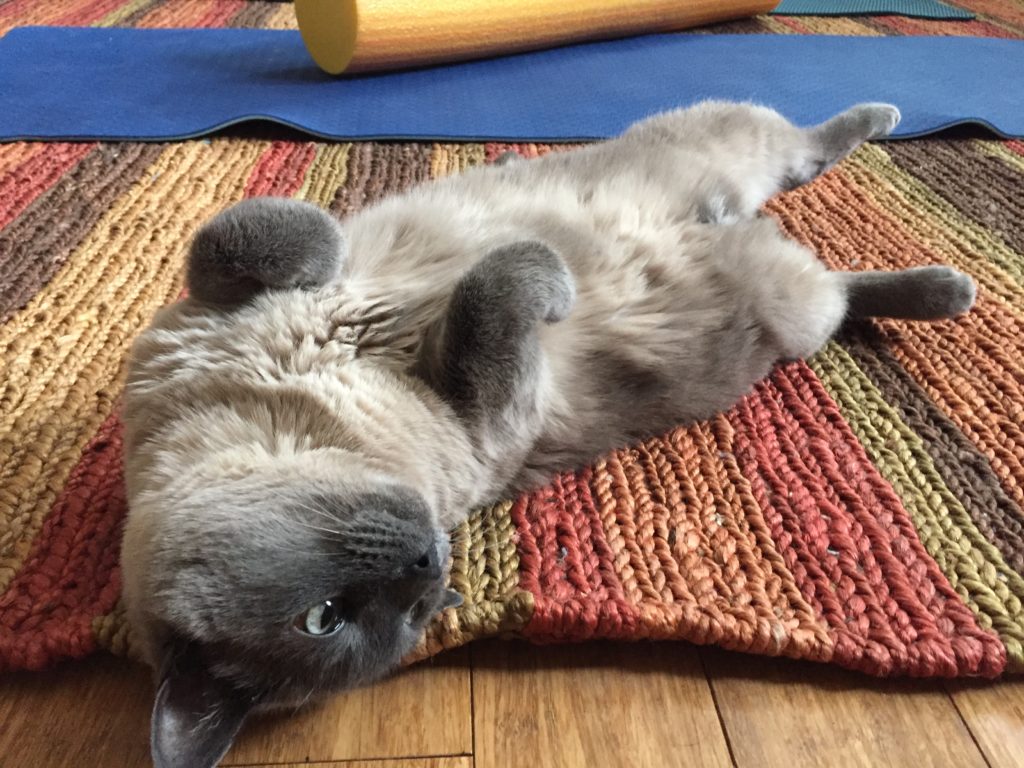
As part of my research on methods to improve immune response through simple and free means, I was shocked to come across research in peer-reviewed medical journals about the effect of meditation on the immune system, specifically an article that talked about the effect on flu vaccine antibodies. I hope you can see how this is directly related to SIRVA, where the body’s immune response is working hard in the wrong place (e.g., the bursa, the rotator cuff tendon) to take care of the antigens in the vaccine that was mis-administered (for many of us, it was the influenza vaccine, but I assume the issues are the same for other vaccines as well).
In this post I’m going to go a little deeper into the mental side of dealing with SIRVA (or, heck, any injury). Skip this post if you are focused right now on the physical aspects, like surgery or PT or medication; I don’t blame you. I’m not ignoring any of those things, either, but this post is about how I am dealing mentally with the constant pain, inflammation, and associated stress and unhappiness that is part of SIRVA. In our survey, many of you have checked the box that indicates some effect of this horrible accident on your mental state, myself included (and it’s getting worse with time):

I’m 6 months out from the flu shot that gave me SIRVA, and it is hard to write this, but while I am grasping at ways to make something positive come out of having SIRVA happen to me, I have sunk into a depression that has affected my work, relationships, and quality of life. One thing I have realized is that for me, sports and outdoor activities have always acted as a natural anti-depressant, an outlet for stress relief, and one of the great joys and focuses of my life. There is plenty of evidence to back up the claim that exercise is good for depression and anxiety.
Since I can’t climb now, I took up running about 1 month into SIRVA, and fortunately running didn’t aggravate the pain too much (it is constant pain, and running doesn’t make it worse). While I always thought I hated running, I dug deep into this new thing and soon found myself eager to go outside again for my next run, and within a month of running trails, I had gone from 5 miles to 10 miles and my right knee started hurting. Long story short, I’m now completely sidelined from running for a few months because of a combination of pushing too hard too quickly and anatomical factors that I never knew about before trying to run (I should start a whole new website on knee pain, but I won’t!).

So now I can’t climb because of SIRVA and I can’t run (temporarily, hopefully) because I wrecked my knees; I had a few more miserable weekends with no activity and after seeing the tragic, high-profile suicides of Kate Spade and Anthony Bourdain in the news, I decided it is pointless to suffer alone when there is help out there for everyone and every problem. Fortunately, I grew up with a psychologist mother and have a therapist close friend so I’m well aware of the resources available; I know that many people misguidedly think that seeking help from a professional is a weakness or a step that THEY’ll never take. If you are suffering, even at a much more mellow level than these famous people who had depression, DON’T BE THAT PERSON who refuses to get help. After Bourdain’s suicide I watched an episode of his show “Parts Unknown” where he sees a psychoanalyst in Buenos Aires as part of the program. He admits that he has never really seen a therapist (except once as a teenager). His seeing this analyst was played off in the show as a jokey, made-for-TV thing; I don’t know if he took it seriously and he was only in Argentina for a very short time. I couldn’t help wondering what could have been different if he had managed to fit regular psychotherapy into his busy, jet-setting lifestyle.
There are many options once you decide to do something about depression, whether short-term and situational (like due to SIRVA) or long-term (see below for a free option). But I decided to see a psychiatrist and we discussed the best ways to deal with this wracking depression. She was very good and steered me towards solutions that were appealing to me and fit into my idea of good medicine. While my current unhappiness is caused by a temporary situation (SIRVA and loss of the ability to treat it with athletics), I’m hoping for long-term strategies to deal with major life setbacks, pain, anxiety, and stress. I won’t describe exactly what we settled on because I recommend that you seek out a psychiatrist or psychotherapist on your own, and hopefully you have good health insurance that covers it.
Between the visit to the doctor and my research, though, one of the things I want to tell you about that I am doing is a free online course in the type of meditation that produced positive immune system changes in the studies referenced above. Why not? It’s free, and may change my life positively forever (or, if it does nothing, all I lost was some time, and right now I have lots of free time since I’m not climbing or running). There are also some non-free online and in-person classes on mindfulness-based stress reduction (MBSR), like here.
My physical therapy (PT) is coming to an end after 6 months; I have a big long-awaited international trip coming up in July; and after I get back if I still can’t lift my arm without pain, I’ll be deciding whether to have surgery or stem cells. In the meantime I’m trying that 8-week MBSR free online program linked to above and I’ll certainly let you know if I thought it helped! But regardless of what happens to me, I’d say that for you, as the title of this post suggests–it’s worth a try (??).
—–
Reminder: From everything I’ve heard, the shoulder pain of SIRVA will eventually get better, but for many people it takes from months to 2 years. This is long enough that it starts to be an issue of “chronic” pain (although, fortunately, with the hope and knowledge that it will get better, with either time or the right intervention). So although it’s temporary, it takes a long time, and for many people, it takes a huge mental toll and affects our well-being. Please get help if you are suffering.
